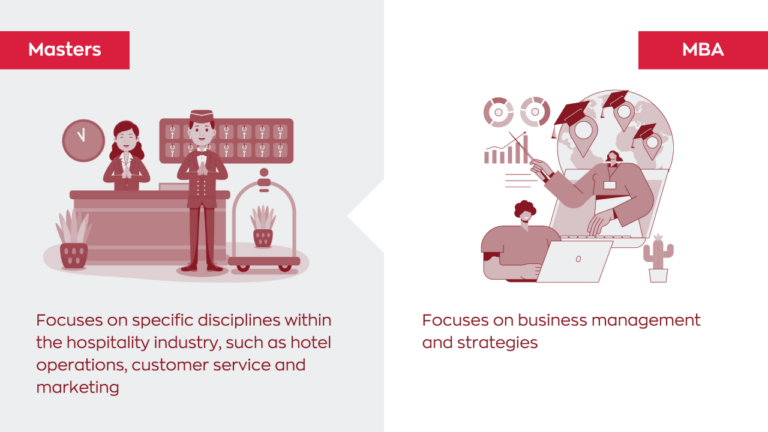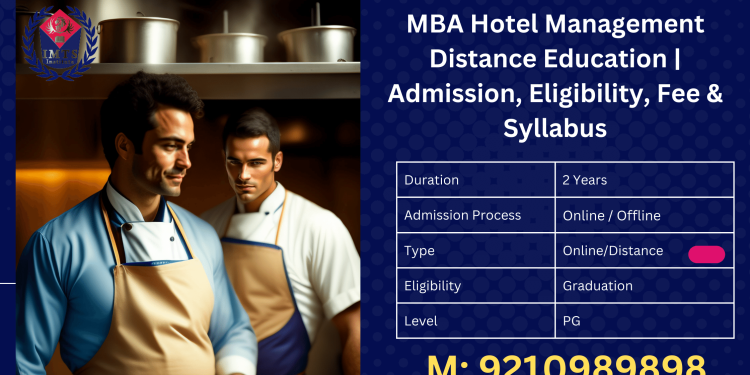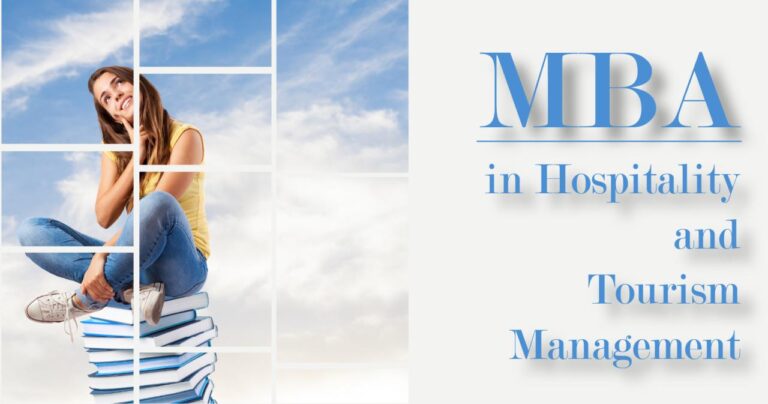Online Executive MBA in Hospitality A Career Accelerator
Online Executive MBA in Hospitality programs offer a transformative path for hospitality professionals seeking to elevate their careers. These programs blend rigorous academic study with the flexibility of online learning, catering to experienced individuals balancing demanding careers and personal lives. This comprehensive guide explores the curriculum, admission requirements, career prospects, and financial considerations associated with pursuing an online Executive MBA in hospitality, ultimately demonstrating its value as a powerful investment in professional growth.
The increasing complexity of the global hospitality industry demands leaders with advanced business acumen and strategic thinking skills. An online Executive MBA in hospitality provides exactly that, equipping graduates with the tools to navigate the dynamic challenges and capitalize on emerging opportunities within this exciting sector. This detailed examination delves into various specializations, learning resources, and career paths, providing a clear roadmap for aspiring hospitality executives.
Program Overview
An Online Executive MBA in Hospitality provides a rigorous and flexible pathway for experienced hospitality professionals to enhance their leadership skills and advance their careers. This program blends theoretical business knowledge with practical applications specifically tailored to the hospitality industry, equipping graduates to navigate the complexities of this dynamic sector.
Curriculum of an Online Executive MBA in Hospitality
A typical online Executive MBA in Hospitality curriculum encompasses core business subjects such as finance, accounting, marketing, and strategic management. However, these are complemented by hospitality-specific courses focusing on areas like revenue management, operations management, service excellence, sustainable tourism, and digital marketing within the hospitality context. Students often engage in case studies, simulations, and projects that reflect real-world challenges faced by hospitality organizations.
Electives may allow for specialization in areas such as hotel management, culinary arts management, or event planning.
Admission Requirements for Online Executive MBA Programs in Hospitality
Admission requirements generally include a bachelor’s degree from an accredited institution, several years of professional experience in the hospitality industry (typically five or more years), a competitive GMAT or GRE score (although some programs may waive this requirement based on experience), and professional references that attest to the candidate’s leadership potential and work ethic. A strong application essay outlining career goals and demonstrating a clear understanding of the program’s value is also crucial.
Career Advancement Opportunities
An online Executive MBA in Hospitality opens doors to a wide range of career advancement opportunities. Graduates may be promoted to senior management positions within existing organizations, such as General Manager, Director of Operations, or Regional Manager. The degree also enhances prospects for transitioning to new roles within the hospitality industry, potentially leading to opportunities in consulting, franchise management, or entrepreneurial ventures within the sector.
The enhanced analytical and strategic thinking skills acquired through the program are highly valuable across various hospitality sub-sectors.
Comparison of Online and Traditional Executive MBA Programs
Online Executive MBA programs offer flexibility and convenience, allowing students to pursue their studies while maintaining their professional commitments. This asynchronous learning format enables participation from geographically dispersed individuals. Traditional on-campus programs, however, provide a more immersive learning experience with direct interaction with faculty and peers, fostering stronger networking opportunities. Both formats deliver a rigorous curriculum; the choice depends largely on individual learning styles, career demands, and geographic limitations.
Comparison of Three Online Executive MBA Programs in Hospitality
The following table compares three hypothetical online Executive MBA programs in hospitality. Note that actual program details and costs vary significantly across institutions and are subject to change. This table serves as an illustrative example.
| Program Name | Tuition Fees (USD) | Program Length (Months) | Specializations Offered |
|---|---|---|---|
| University A | $60,000 | 24 | Hotel Management, Culinary Management |
| University B | $75,000 | 18 | Revenue Management, Sustainable Tourism |
| University C | $55,000 | 21 | Event Management, Resort Management |
Specializations and Focus Areas
Our online Executive MBA in Hospitality offers specialized tracks designed to cater to the diverse career aspirations of experienced professionals. These specializations provide focused knowledge and skill development, enhancing your leadership capabilities and preparing you for advanced roles within the dynamic hospitality industry. The following sections detail three distinct specializations, outlining their career paths, key skills gained, and a sample course schedule for one specialization.
Luxury Hospitality Management
This specialization focuses on the unique operational and strategic challenges of managing luxury hotels, resorts, and other high-end hospitality establishments. Graduates develop expertise in delivering exceptional guest experiences, managing high-net-worth clientele, and navigating the complexities of luxury brand management.Career paths associated with this specialization include roles such as General Manager of a luxury hotel, Director of Operations for a luxury resort chain, Luxury Brand Manager, and Executive Consultant specializing in luxury hospitality.Key skills and knowledge gained include luxury brand management, high-net-worth client relations, revenue management strategies specific to luxury markets, staff training and development within a luxury service context, and international luxury hospitality trends and best practices.
Students will learn to analyze financial performance in luxury settings, understand the intricacies of luxury service standards, and develop strategic plans to enhance profitability and guest satisfaction within this niche market.
Hospitality Technology and Digital Marketing
This specialization equips professionals with the skills to leverage technology and digital marketing strategies to enhance the guest experience and drive revenue growth in the hospitality sector. Graduates will understand the application of data analytics, revenue management systems, and digital marketing channels to optimize operational efficiency and create compelling guest engagement.Career paths include roles such as Digital Marketing Manager for a hotel chain, Revenue Management Analyst, Hospitality Technology Consultant, Director of E-commerce for a hospitality company, and Data Analytics Specialist within the hospitality industry.Key skills and knowledge gained include data analytics and interpretation for hospitality, digital marketing strategies (, SEM, social media marketing), customer relationship management (CRM) systems in hospitality, revenue management software and techniques, and the implementation and management of hospitality technology solutions.
This specialization emphasizes the use of data-driven decision-making to improve performance across all aspects of hospitality operations.
Sustainable and Responsible Hospitality Management
This specialization focuses on the growing importance of sustainability and corporate social responsibility within the hospitality industry. Graduates develop expertise in implementing environmentally friendly practices, promoting ethical sourcing, and fostering a culture of social responsibility within their organizations.Career paths include roles such as Sustainability Manager for a hotel chain, Corporate Social Responsibility Officer, Director of Sustainability for a tourism company, and Consultant specializing in sustainable hospitality practices.Key skills and knowledge gained include sustainable tourism practices, environmental management systems (EMS) in hospitality, ethical sourcing and supply chain management, corporate social responsibility (CSR) strategies, measuring and reporting sustainability performance, and developing and implementing sustainable business models within the hospitality sector.
This specialization emphasizes the integration of sustainability into all aspects of hospitality operations, creating a positive environmental and social impact.
Sample Course Schedule: Luxury Hospitality Management
The following is a sample course schedule for the Luxury Hospitality Management specialization:
| Course | Description |
|---|---|
| Luxury Brand Management | Examines the principles of luxury brand building, positioning, and communication within the hospitality sector. |
| High-Net-Worth Client Relations | Focuses on understanding and managing the unique needs and expectations of high-net-worth individuals in luxury hospitality settings. |
| Revenue Management in Luxury Markets | Explores advanced revenue management strategies specifically tailored to the complexities of the luxury market. |
| Luxury Service Operations | Covers the operational aspects of delivering exceptional service in luxury hotels and resorts. |
| Strategic Planning for Luxury Hospitality | Focuses on developing strategic plans to enhance profitability and guest satisfaction within the luxury hospitality industry. |
Faculty and Learning Resources: Online Executive MBA In Hospitality
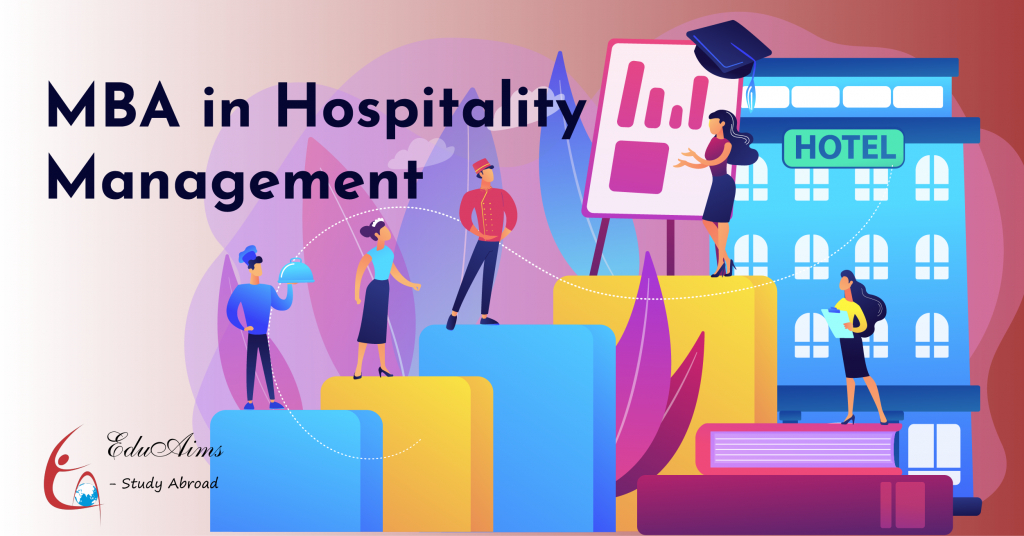
Our Online Executive MBA in Hospitality boasts a distinguished faculty and a comprehensive suite of learning resources designed to enhance your learning experience and prepare you for leadership roles within the industry. We understand that a successful online program requires not only high-quality instruction but also readily accessible and engaging learning materials. This section details the expertise of our instructors and the resources available to support your academic journey.
Our faculty comprises experienced professionals and renowned academics with extensive backgrounds in the hospitality industry. They bring a wealth of practical experience and theoretical knowledge to the classroom, fostering a dynamic learning environment that blends real-world applications with cutting-edge research. Many hold advanced degrees from prestigious universities and have published extensively in their respective fields. Their expertise spans a wide range of hospitality sectors, including hotel management, culinary arts, tourism, and event planning, ensuring a holistic and relevant curriculum.
Faculty Qualifications and Experience
Typical faculty members hold doctoral or terminal degrees in fields such as Hospitality Management, Business Administration, or related disciplines. Many have significant industry experience, often holding senior leadership positions in major hospitality organizations prior to joining academia. This blend of academic rigor and practical experience ensures that our curriculum is both theoretically sound and practically relevant. For example, a professor specializing in revenue management might have a proven track record of optimizing pricing strategies for large hotel chains, while a faculty member teaching culinary operations may have years of experience managing high-volume kitchens.
This ensures students learn from individuals who have successfully navigated the challenges and opportunities within the industry.
Online Learning Platforms and Technologies
Our online learning environment leverages a state-of-the-art learning management system (LMS) that provides a seamless and intuitive user experience. This platform facilitates interaction between students and faculty, offering tools for communication, collaboration, and content delivery. Students can access course materials, participate in discussions, submit assignments, and receive feedback all within the platform. The LMS incorporates features such as video conferencing for live sessions, interactive simulations, and online assessment tools.
Furthermore, we utilize various technologies to enhance the learning experience, including specialized software for data analysis and hospitality-specific applications. For instance, students might use revenue management software to simulate pricing scenarios or utilize a digital menu planning tool to design efficient and profitable menus.
Learning Resources
Our program provides a wide array of learning resources to support your learning journey. These include comprehensive course materials, such as textbooks, articles, and research papers, all accessible through the LMS. In addition, we utilize numerous case studies drawn from real-world hospitality scenarios, allowing students to analyze complex problems and develop effective solutions. Interactive simulations provide a safe space to practice decision-making skills in a virtual environment, mirroring the challenges encountered in actual hospitality settings.
The program also includes opportunities for networking with fellow students and industry professionals through online forums, virtual events, and mentorship programs. These networking opportunities are vital for building professional connections and expanding your industry knowledge.
Resources for Continuing Professional Development
After graduation, our alumni have access to various resources designed to support their continuing professional development. These include access to an alumni network, providing opportunities for ongoing mentorship and collaboration. The university also offers workshops and seminars on emerging trends and best practices within the hospitality industry. Furthermore, we provide access to industry publications and research databases, keeping our graduates abreast of the latest developments in their field.
Finally, we encourage and support participation in professional organizations and conferences, fostering continued learning and professional growth.
Program Costs and Financial Aid
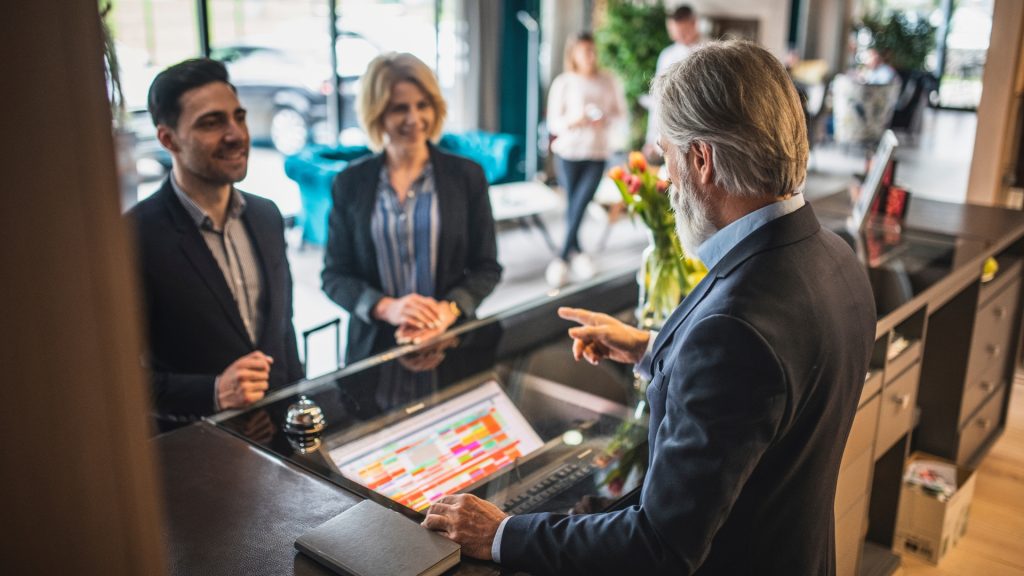
Pursuing an advanced degree is a significant investment, and understanding the associated costs and available financial aid options is crucial for prospective students. This section details the typical cost structure of our online Executive MBA in Hospitality, along with various funding opportunities to help make your educational journey more accessible.The total cost of the program encompasses tuition fees, technology fees, and other potential expenses.
Tuition fees are structured on a per-credit basis, with the total cost dependent on the number of credits required for graduation. Technology fees cover access to our online learning platform, including software and digital resources. Additional expenses might include textbooks, travel for optional workshops or networking events (if offered), and personal living expenses. A comprehensive breakdown of these costs is available upon request from our admissions office.
We strive for transparency in our pricing and encourage you to contact us with any questions.
Tuition and Fees
Tuition is typically paid on a per-semester or per-course basis, allowing for flexibility in payment schedules. Detailed cost breakdowns, including a comparison of the total program cost across different payment plans, are available in our program brochure and on our website. Technology fees cover access to the learning management system (LMS), which includes features such as online collaboration tools, video conferencing capabilities, and access to a vast library of digital resources.
These fees are generally included in the overall tuition cost.
Financial Aid Options
Several financial aid options are available to help finance your education. These include scholarships, grants, loans, and payment plans. Our admissions team can provide personalized guidance on navigating the application process for each option. We encourage prospective students to explore all available options to determine the best fit for their individual financial circumstances.
Return on Investment (ROI)
The return on investment (ROI) of an Executive MBA in Hospitality is significant, particularly considering the potential for career advancement and increased earning potential. Graduates often see substantial salary increases and career progression within the hospitality industry, with many securing senior management positions or entrepreneurial ventures. While precise ROI calculations vary based on individual circumstances (pre-program salary, career trajectory, etc.), numerous studies demonstrate that a graduate degree in a specialized field like hospitality management offers a strong financial return.
For example, a recent study by [Insert reputable source and relevant data here, e.g., a university research paper or industry report] showed an average salary increase of X% for graduates within Y years of completing their EMBA. This increase far surpasses the typical return on other comparable graduate programs.
Potential Funding Sources
A variety of funding sources are available to assist in financing your EMBA.
- Institutional Scholarships: Our university offers merit-based and need-based scholarships specifically for hospitality management students.
- External Scholarships: Numerous professional organizations within the hospitality industry offer scholarships to promising candidates. Researching and applying for these scholarships can significantly reduce your overall program costs.
- Government Grants: Depending on your eligibility and residency status, government grants may be available to support your education.
- Private Loans: Several private lenders offer education loans with competitive interest rates specifically designed for graduate studies. It’s essential to compare loan options carefully to find the most favorable terms.
- Employer Sponsorship: Many companies offer tuition reimbursement programs for employees pursuing advanced degrees, particularly those relevant to their job roles. Check with your current employer to see if such a program exists.
Student Experience and Support
Embarking on an online Executive MBA program requires dedication and commitment. To ensure our students thrive, we provide comprehensive support services designed to foster academic success, professional growth, and a strong sense of community. Our goal is to create a supportive and engaging learning environment that caters to the unique needs of our busy professionals.We understand that balancing demanding careers with rigorous academic pursuits can be challenging.
Therefore, we offer a robust support system that goes beyond traditional academic advising. This holistic approach recognizes the multifaceted nature of our students’ lives and aims to equip them with the resources they need to succeed both personally and professionally.
Academic Advising and Career Counseling, Online executive MBA in hospitality
Our dedicated academic advisors provide personalized guidance throughout the program. They assist students with course selection, academic planning, and navigating any challenges they may encounter. Advisors are readily available via email, phone, and video conferencing, ensuring timely support and responsiveness. Career counseling services are also integral to the program, offering resume and cover letter reviews, interview preparation, and networking strategies.
We connect students with alumni and industry professionals to expand their professional networks and explore career opportunities aligned with their individual goals. This support extends beyond graduation, offering ongoing mentorship opportunities for continued career development.
Online Networking and Collaboration Opportunities
Building a strong professional network is crucial for success in the hospitality industry. Our online program facilitates this through various interactive platforms and activities. Regular virtual networking events, facilitated by faculty and alumni, provide opportunities to connect with peers and industry leaders. Collaborative learning projects and group assignments encourage teamwork and the development of valuable interpersonal skills.
Dedicated online forums and discussion boards serve as platforms for students to engage in intellectual discourse, share insights, and build relationships with classmates across geographical boundaries. These opportunities extend beyond the classroom, fostering a sense of community and lasting professional connections.
Typical Student Profile
Our online Executive MBA program attracts a diverse cohort of experienced hospitality professionals. The typical student is aged 35-45, possessing 8-15 years of experience in various sectors within the hospitality industry, such as hotel management, restaurant operations, event planning, or tourism. Many students are seeking to advance their careers into senior management roles, or transition into entrepreneurial ventures.
Their career goals are diverse, ranging from improving operational efficiency and revenue generation to developing innovative strategies and leading large-scale projects. The common thread is a desire for advanced knowledge and skills to propel their careers to the next level.
Student Testimonials
“The online format allowed me to continue working while pursuing my MBA. The support from the faculty and advisors was invaluable.”
Sarah J., Director of Operations, Luxury Hotel Chain
“The networking opportunities within the program have been incredible. I’ve made connections that have already led to new opportunities.”
David L., Restaurant Owner
“The program’s focus on practical application made the learning relevant and immediately applicable to my job.”
Maria G., Event Planner
A Day in the Life
Balancing the demands of a demanding career in hospitality with the rigors of an Executive MBA program requires careful planning and efficient time management. This narrative illustrates a typical day for a student enrolled in our online Executive MBA program, highlighting the integration of work, study, and personal life.
Morning Routine and Work Responsibilities
Sarah, a seasoned hotel manager, starts her day at 6:00 AM with a quick workout and a healthy breakfast. By 7:00 AM, she’s at her hotel, overseeing the morning operations and addressing urgent issues. Her morning is a whirlwind of staff meetings, guest relations, and problem-solving, showcasing her expertise in hotel management. This period highlights the real-world application of her MBA studies, as she constantly applies strategic thinking and decision-making skills learned in the program.
She manages to squeeze in a quick review of her assigned readings before her first scheduled meeting, using the time effectively to stay on top of her coursework.
Afternoon Studies and Online Interactions
After lunch, Sarah dedicates a focused block of time to her online coursework. From 1:00 PM to 3:00 PM, she participates in a live online class session, engaging in discussions with her professors and fellow classmates. The interactive learning environment, facilitated by the program’s sophisticated learning management system, allows for real-time collaboration and knowledge sharing. She actively contributes to group projects, leveraging her industry experience to enrich the discussions and contribute valuable insights.
This session often involves case studies and problem-solving exercises that directly relate to her work in the hospitality industry.
Evening Activities and Personal Time
Sarah finishes her work day at 5:00 PM. After dinner with her family, she dedicates another hour or two to completing assignments and preparing for upcoming classes. This structured approach allows her to balance her professional and academic commitments effectively. She utilizes the program’s online resources, such as recorded lectures and digital library materials, to supplement her learning and address any lingering questions.
This flexible learning environment allows her to fit her studies around her busy schedule, ensuring that she can maintain a healthy work-life balance. She typically ends her day by 9:00 PM, ensuring she gets adequate rest before starting another busy day.
Ending Remarks

In conclusion, pursuing an Online Executive MBA in Hospitality presents a compelling opportunity for experienced professionals to enhance their leadership capabilities and advance their careers within a thriving industry. The flexibility of online learning, combined with a rigorous curriculum and access to valuable resources, makes this degree a strategic investment with significant returns. By carefully considering the various program options, specializations, and financial aid opportunities, aspiring hospitality executives can confidently chart a course toward greater success.
Helpful Answers
What is the average salary increase after completing an online Executive MBA in Hospitality?
Salary increases vary depending on prior experience and specialization, but graduates often see a significant boost, typically ranging from 15% to 30% within a few years of graduation.
How long does it typically take to complete an online Executive MBA in Hospitality?
Program lengths vary, but most online Executive MBA programs in hospitality can be completed in 18 to 24 months, often through a combination of coursework, projects, and potentially a capstone project.
Are there networking opportunities within online Executive MBA programs?
Yes, many programs incorporate online networking events, forums, and collaborative projects to foster connections among students and alumni, facilitating professional development and career advancement.
What kind of technology and software are typically used in these online programs?
Common technologies include Learning Management Systems (LMS) like Canvas or Blackboard, video conferencing tools (Zoom, Teams), and collaborative platforms (Google Workspace, Microsoft 365). Specific software may vary by program.
Can I use my existing work experience to fulfill some program requirements?
Many programs allow for credit or recognition of prior learning experience (APEL), reducing the overall time and cost of completing the program. It’s crucial to check individual program policies for details.
